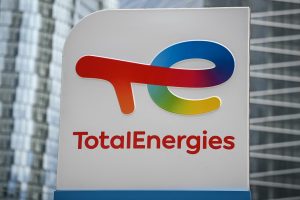TotalEnergies commits $750m to boost Nigeria’s gas industry
November 29, 2024640 views0 comments
Onome Amuge
French energy giant TotalEnergies is gearing up to authorise a $750 million gas project in the country by next year, a promising move to develop Nigeria’s hydrocarbon industry.
The announcement was made by Mike Sangster, TotalEnergies’ senior vice president of Africa (Exploration and Production), during a France-Nigeria business forum in Paris.
The TotalEnergies-led gas project, sited in the country’s shallow waters, is being developed in collaboration with a local firm, with the ultimate goal of augmenting gas supply to the Liquefied Natural Gas (LNG) facility.
Read Also:
The multinational energy company is no stranger to investing in Nigeria’s hydrocarbon sector, having earlier this year pledged $500 million to a joint venture with state-owned Nigerian National Petroleum Company (NNPC) Limited to develop the Ubeta onshore field.
If all goes as planned, the TotalEnergies-NNPC joint venture’s Ubeta onshore field project will deliver 300 million cubic feet of gas per day, a considerable increase in gas supply expected to fortify the Nigerian Liquefied Natural Gas (NLNG) plant’s gas supply.
President Bola Tinubu, who assumed office in May 2023, stated that he has been working steadily to address the issues plaguing Nigeria’s oil and gas sector. As part of his efforts, the president has already signed two executive orders this year to improve efficiency in the sector.
In line with the government’s ongoing drive to revamp the oil and gas industry, Nigeria is seeking to draw up to $10 billion in new investments for deep-water gas exploration. Thus, the country’s new policy framework offers tax incentives and other measures to entice investors to engage in this ambitious project.
“There’s still more to be done in terms of regulation, simplifying, and accelerating the process, but we have appreciated some of the changes that have been made over the past year,” Sangster stated.
He added, “They (the government) have given us now the incentive or the motivation to go ahead and renew our investments in Nigeria so that we can stop the decline and start to increase production.”
Acknowledging the need for foreign expertise to achieve the country’s ambitious deep-water exploration targets, Sangster identified the importance of easing local content regulations to attract experienced international contractors back to Nigeria.
In his remarks, Sangster argued that this would foster greater competition and re-engage the interest of investors who have previously suspended their investments in Nigeria due to the challenges posed by the strict local content policies.

